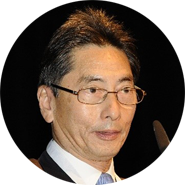main content

Ar Dr Joseph KWAN Kwok-lok, MH
Vice President, Asia Pacific, Rehabilitation International
Founder and Director, UDA Consultants Ltd
Dr Joseph Kwan is an architect and universal design and access consultant with 48 years of experience in the international architectural community, 35 years of which have been focused on universal accessibility, transportation, and inclusive tourism projects. He
is the Founding Director of UDA Consultants Ltd (Universal Design and Accessibility Consultants) in Hong Kong since 2005.
Dr Kwan was a Consultant to the United Nations Economic and Social Commission for Asia and the Pacific, a Resource Person for their Non-Handicapping Environment training courses, and their Advisor on Accessible Tourism. He is the current Vice-President of Asia
Pacific for Rehabilitation International (RI), and was the Global Chair of RI International Commission on Technology and Accessibility (ICTA) for a decade.
Dr Kwan was a recent member of the Hong Kong SAR Government’s Rehabilitation Advisory Committee (RAC), Chair of the RAC Sub-Committee on Access, Convenor of the RAC’s Persons with Disabilities and Rehabilitation Programme Plan - Task Force on Accessible Built
Environment, and Buildings Department’s Technical Committee on the Review of the Design Manual: Barrier Free Access 2008.
Since 1999, Dr Kwan has been the Director of International Union of Architects (UIA) Work Programme on “Architecture for All”. He is the Inaugural Chairman of Architects Regional Council Asia’s (ARCASIA) Committee on Social Responsibility (ACSR) and also the
Inaugural Director of ARCASIA Emergency Architects (AEA).
Dr Kwan is a recipient of various honours and awards including RI’s Centennial 1922-2022 Award for Significant Contributions to the global community, The American Institute of Architects (AIA) Hong Kong Citation (2000), and the Medal of Honour (MH) by the Hong
Kong SAR Government in 2001. He is also the author of publications on various aspects of designing for universal accessibility/disability and has given lectures on accessibility in over 34 countries.
Presentation title:
Promotion of Inclusion and Equity Through Universal Design and Accessibility
Presentation summary:
The concept of Universal Design and Accessibility entails that the built environment provides a variety of choices in working and living arrangements, as well as be adaptable to the changing needs and health circumstance of people without requiring drastic
environmental changes. This concept can be further elaborated to encourage people with disabilities and the elderly to independently enjoy their built environment and live healthier lifestyles.
One of the major aims of an inclusive and equitable environment is to facilitate and promote a healthy lifestyle for all. The concepts of “Universal Design”, “Inclusion by Design”, and “Design-for-All” are essential.
Universal Design is not a trend, but an enduring design approach which assumes that the range of human ability is ordinary, not special. It is all about integrating the continuum of the micro and macro perspectives of the surrounding world. It embodies
universality by incorporating inclusive facilities, as well as equitable building features and equipment, which, to the greatest extent possible, designs that can be used by everyone, regardless of age and physical abilities.
The approach to Universal Accessibility recognises that accessible systems, reliable information sources, and enabling environments can promote inclusion and equality, maximise choice, and enhance the ability of a wider range of the population, including people
with disabilities and the elderly, to live independently, proactively and hence enjoyably.
The design considerations that incorporate inclusion and equity will provide useful and cutting-edge guidelines for professionals, planners, designers, and architectural practitioners in their pursuit of socially responsive building designs for a broader
population.
An inclusive, accessible, and equitable environment is the ideal to achieve in any community. The aim is to work towards an environment that is non-handicapping, that promotes freedom of choice and independence, and respects the individuals’ right to live a full
life with dignity irrespective of age and disability.
